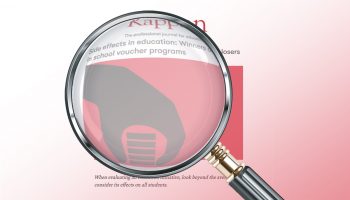
By Liberty McArtor
Published on December 10, 2017 •
Liberty McArtor
Pro-life groupings in Europe are generally facing increasing censorship. A while back, a Scottish university banned some sort of pro-life students from being created an official club, boasting it would be “a foundation to harass scholars,” and France criminalized pro-life sites.
University of Strathclyde Denies Pro-Life Club
The College or university of Strathclyde’s Student’ohydrates Association (USSA) in Scotland possesses placed a suspend on all “anti-choice” groups, according to Monday any Facebook post with Strathclyde Life Action, a small grouping of pro-life students at the institution.
The ban will prevent communities like Strathclyde Life Action from becoming an standard club or gaining funding for situations, though the group says they’lso are not demanding funding. “We want a platform where by we can stand up objective we believe.”
According to a statement by , a Scottish paper, the USSA’s justification with the ban is that “anti-choice groupings actively use lovato and fear practices to harass consumers entering abortion clinics.”
The USSA likewise claimed that “enabling an anti-choice group to produce would be a barrier that will freedom, equality and body autonomy for those utilizing uteruses on campus,” gives pro-life students a “foundation to harass pupils,” and would “disobey their safe place.”
Strathclyde Life Action had a different take on the plan, saying that they “were lacking any aims which denied that women are free to the liberties of. Rather, we searched for to educate students concerning the medical and honourable discussion which is all around end of life issues.”
“The protection itself is an assault on the right to liberty of expression,” the target audience wrote on Facebook.
This is Silly
The USSA’s suspend was even criticized by means of pro-choice writer Charlie Peters at the British isles online magazine , who seem to said that all students should have the freedom to tone their views and debate on environs. Peters also took issue with the USSA’s accusation that permitting a pro-life group on grounds would violate a safe space with pro-choice students.
“This is absurd,” Peters writes. “When I confront a view I actually disagree with, however shocking or attacking it might be, I not often find myself intimidated by it, or afraid of those expressing it.”
Strathclyde Life Action claims that the USSA has dishonored the European Convention regarding Human Rights along with Scotland’s Further and Higher Education Act, plus they are going to protest the policy.
“We will be organising occasions in the future to strategy against this decision, and – if it is not resolved – further exterior action will be undertaken,” the group posted on Facebook.
wrote Strathclyde Living Action for further thoughts, but has not gotten a response.
France Passes Bill Aimed at Silencing Pro-Life Websites
The lower place of the French parliament surpassed the “digital interference” bill last week, reported. Marketplace criminalizes French websites that “deliberately mislead, frighten and/or exert psychological or perhaps moral pressure to discourage recourse for you to abortion.” The law includes problems of up to two years in prison and fines as much as 30,000 euros.
Dr. Joseph Meaney of Person’s for Life International explained to that “we are from the realm of unrestricted pro-abortion propaganda along with the most stringent censorship connected with free speech if it disagrees with the view that abortion is a marvellous solution to crisis pregnancies.” He added, yet, that the bill would “probably be reversed by means of judicial redress.”
This bill isn’testosterone the first example within recent weeks with France has great down on free speech. Only last month France’s Talk about Council upheld a ban on an award-winning video entitled “Dear Future Mother.” The video features cheerful children and teenagers with Down symptoms talking about all the achievements someone with Lower syndrome can accomplish.
The State Council upheld any ban on the video because seeing happy people that have Down syndrome had been “likely to disturb the conscience of women who actually had lawfully built different personal life choices.” The video is not allowed to be played in French television.





